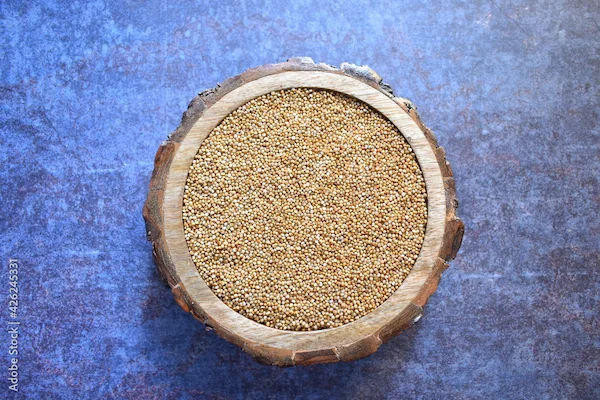How to Reduce Body Inflammation: A Simple Guide to Better Health
Learn effective ways to reduce inflammation in your body. Explore dietary changes, lifestyle adjustments, and when to seek medical advice.

Written by Dr.Sonia Bhatt
Last updated on 3rd Jul, 2025
Inflammation is your body’s natural way of healing and protecting itself from harm, like when you get injured or catch a cold. But when it sticks around for too long, it can cause serious health problems.
Understanding Inflammation
Inflammation is a process where your body reacts to injury or infection. It can be helpful in protecting you, but when it’s not controlled, it can lead to health issues.
What is Inflammation?
When your body detects something harmful—like an infection, injury, or irritant—it sends out special cells to help protect and heal the area. This causes the affected area to become red, swollen, or warm. This is inflammation in action. It's your body's way of saying, "I'm working to fix this."
Types of Inflammation: Acute vs. Chronic
There are two types of inflammation:
Acute Inflammation: This is a short-term response, like when you twist your ankle or catch a cold. It helps your body fight infection or heal, and once the problem is gone, the inflammation fades away.
Chronic Inflammation: This lasts longer, sometimes for months or even years, and it’s usually linked to conditions like arthritis, heart disease, or diabetes. Chronic inflammation can harm your body over time, leading to bigger health problems.
Causes and Triggers of Inflammation
There are many things that can trigger inflammation in your body, including:
Poor diet: Eating too much-processed food, sugar, and unhealthy fats can cause inflammation.
Lack of exercise: Being inactive can lead to inflammation.
Stress: Chronic stress is a big factor in increasing inflammation.
Sleep problems: Not getting enough quality sleep can also raise inflammation levels.
Obesity and smoking: These habits can trigger inflammation and worsen health conditions.
To manage inflammation, making some lifestyle changes can make a big difference.
The Impact of Diet on Inflammation
What you eat plays a big role in either increasing or reducing inflammation. Some foods can help lower inflammation, while others can make it worse.
Anti-inflammatory Foods
Eating certain foods can help reduce inflammation:
Fruits and vegetables: Foods like berries, oranges, tomatoes, spinach, and kale are full of antioxidants and vitamins that can reduce inflammation.
Fatty fish: Salmon, mackerel, and sardines are rich in omega-3 fats, which are known to fight inflammation.
Nuts and seeds: Walnuts, almonds, chia seeds, and flaxseeds contain healthy fats that lower inflammation.
Olive oil: Extra virgin olive oil has compounds that reduce inflammation, much like some medications.
Spices: Turmeric and ginger are great for fighting inflammation. Add them to your meals to get their benefits.
Foods that Increase Inflammation
Some foods can make inflammation worse. These include:
Refined carbs: White bread, cakes, and other processed carbs can trigger inflammation.
Sugar: Too much sugar in your diet can cause your body to become inflamed.
Trans fats: These fats are found in many packaged foods and can lead to increased inflammation.
Red meat and processed meats: Eating too much red meat or processed meats like sausages can cause inflammation.
Cutting back on these foods can help keep inflammation under control.
Lifestyle Changes to Lower Inflammation
Apart from what you eat, making changes to your lifestyle can help reduce inflammation.
The Role of Physical Activity
Regular exercise helps lower inflammation in the body. It keeps your blood flowing, helps maintain a healthy weight, and reduces fat, all of which can lower inflammation. Aim for at least 150 minutes of moderate exercise per week, such as walking, swimming, or cycling. Even activities like yoga or stretching can help.
Stress Management Techniques
Chronic stress is a major cause of inflammation. When you’re stressed, your body releases hormones that can make inflammation worse. To manage stress, try:
Meditation
Breathing exercises
Mindfulness (focusing on the present moment)
Relaxation techniques
Taking time to relax and reduce stress can help lower inflammation levels in your body.
Importance of Sleep
Getting enough sleep is crucial for controlling inflammation. Poor sleep can increase the production of substances that promote inflammation. Try to get 7-9 hours of quality sleep each night. This will help keep your immune system healthy and inflammation at bay.
Anti-inflammatory Supplements and Medications
If lifestyle changes alone aren’t enough, some supplements and medications can help reduce inflammation.
Popular Supplements that Reduce Inflammation
Several supplements may help lower inflammation, including:
Fish oil (omega-3s): Omega-3s are great for reducing inflammation. You can get these from fish oil supplements.
Curcumin (from turmeric): Curcumin has strong anti-inflammatory effects.
Ginger: Ginger supplements are known to help with inflammation, especially in joint conditions like arthritis.
Prescription and Over-the-Counter Medications
If you have chronic inflammation, your doctor might recommend medications like nonsteroidal anti-inflammatory drugs (NSAIDs) or corticosteroids. These can help manage pain and inflammation. Always talk to your doctor before using these medications for a long period.
The Connection Between Gut Health and Inflammation
Did you know your gut health can affect your inflammation levels? The bacteria in your digestive system, known as the microbiome, play a role in regulating inflammation throughout your body.
The Role of the Gut Microbiome
A healthy gut helps keep inflammation low. If your gut bacteria are out of balance, it can contribute to chronic inflammation. This is why it’s important to take care of your digestive health.
Dietary Changes to Improve Gut Health
To support a healthy gut, focus on foods that promote good bacteria, such as:
Fibre-rich foods: Vegetables, fruits, beans, and whole grains help keep your gut bacteria happy and can reduce inflammation.
Probiotics: Foods like yoghurt, kefir, sauerkraut, and kimchi contain good bacteria that improve gut health.
The Role of Hydration in Reducing Inflammation
Staying hydrated is essential for controlling inflammation. Drinking enough water helps flush out toxins, supports healthy blood flow, and keeps your body’s healing processes running smoothly.
Importance of Staying Hydrated
Being well-hydrated can help reduce inflammation. Try to drink at least eight glasses of water a day to keep your body working at its best.
Impact of Dehydration on Inflammation
If you’re dehydrated, your body’s inflammatory response can worsen. Dehydration may also make other health issues worse, especially those linked to chronic inflammation, like arthritis.
Consult Top General Physicians
Chronic Diseases and Inflammation
Chronic inflammation is linked to many long-term health problems.
Conditions that Cause Chronic Inflammation
Some common conditions that involve chronic inflammation include:
Arthritis
Heart disease
Type 2 diabetes
Inflammatory bowel disease (IBD)
Asthma
Managing Inflammation in Chronic Disease
If you have a chronic condition, it’s important to work with your doctor to find ways to reduce inflammation. This could involve making changes to your diet, taking medications, and staying active.
Monitoring and Measuring Inflammation
Your doctor can measure your inflammation levels with blood tests. Two common tests for this are the C-reactive protein (CRP) test and the erythrocyte sedimentation rate (ESR) test.
How to Track Inflammation Levels
Keeping track of your symptoms can help you understand how well your treatments are working. Write down what you eat, how much you exercise, your stress levels, and your sleep habits. This can help you notice patterns and see if your inflammation is improving.
Natural Remedies and Alternative Therapies
If you're looking for natural ways to help with inflammation, there are some treatments that may help.
Herbal and Plant-Based Treatments
Some herbs, like turmeric, green tea, and boswellia, can help reduce inflammation. But before trying any of these herbs or supplements, it’s important to talk to your doctor, especially if you are already taking other medications.
Physical Therapies like Massage and Acupuncture
Massage therapy and acupuncture can also help with inflammation. These treatments can be especially helpful if your inflammation is in your muscles and joints or if it’s caused by stress.
Conclusion
Inflammation is a normal process that helps protect your body, but when it lasts too long, it can be harmful. By making simple changes to your diet, exercise, stress, and sleep habits, you can lower inflammation and feel better. If you have a long-term condition, it's important to work with your doctor to manage your inflammation. Taking care of your inflammation can help you feel healthier and live longer.
Consult Top General Physicians
Consult Top General Physicians

Dr. Rajib Ghose
General Practitioner
25 Years • MBBS
East Midnapore
VIVEKANANDA SEBA SADAN, East Midnapore
Dr. Paras Gangwal
General Physician/ Internal Medicine Specialist
28 Years • MBBS,MD General Medicine
Delhi
Dr Paras Gangwal Clinic, Delhi

Dr Syed Mizra M
General Physician/ Internal Medicine Specialist
2 Years • MBBS
Bengaluru
PRESTIGE SHANTHINIKETAN - SOCIETY CLINIC, Bengaluru

Dr. Swagata Sircar
General Physician/ Internal Medicine Specialist
8 Years • MBBS, MD General Medicine
Kolkata
HealthYou Speciality Clinic & Diagnostics., Kolkata

Dr Syed Mateen Pasha
General Physician
2 Years • MBBS
Bengaluru
PRESTIGE SHANTHINIKETAN - SOCIETY CLINIC, Bengaluru
Consult Top General Physicians

Dr. Rajib Ghose
General Practitioner
25 Years • MBBS
East Midnapore
VIVEKANANDA SEBA SADAN, East Midnapore
Dr. Paras Gangwal
General Physician/ Internal Medicine Specialist
28 Years • MBBS,MD General Medicine
Delhi
Dr Paras Gangwal Clinic, Delhi

Dr Syed Mizra M
General Physician/ Internal Medicine Specialist
2 Years • MBBS
Bengaluru
PRESTIGE SHANTHINIKETAN - SOCIETY CLINIC, Bengaluru

Dr. Swagata Sircar
General Physician/ Internal Medicine Specialist
8 Years • MBBS, MD General Medicine
Kolkata
HealthYou Speciality Clinic & Diagnostics., Kolkata

Dr Syed Mateen Pasha
General Physician
2 Years • MBBS
Bengaluru
PRESTIGE SHANTHINIKETAN - SOCIETY CLINIC, Bengaluru




